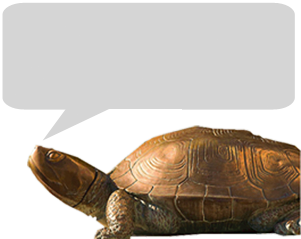Conservation Crime Fighter
Conservation Crime Fighter

Assistant Professor of Geographical Sciences Meredith Gore (pictured in Madagascar) has pioneered the field of conservation criminology, seeking to understand crimes ranging from poaching to illegal logging. Photo courtesy of Meredith Gore
While a criminologist might analyze broad patterns of carjackings or corporate crime, a new, related research field pioneered by a UMD scientist has her tracking the fate of a sluglike animal swimming off Mexico’s coast.
Meredith Gore, an assistant professor of geographical sciences who in 2009 created the concept of “conservation criminology,” worked this summer on the Yucatan Peninsula for her latest study, spurred by concerned local fishing communities and funded by the U.S. Fish and Wildlife Service, to understand the illegal harvesting of sea cucumbers.
She spoke to Maryland Today about her global work, drawing from sociology, biology, anthropology and other disciplines to understand and stop crimes, from poaching to illegal mining, that target the natural world.
What are some specific environmental crimes you aim to solve?
It’s not so much crime solving—I’m interested in crime prevention instead of crime response. When it comes to conservation, once the tree is cut, it’s dead. Once the elephant is shot, it’s gone. Once the sea cucumber is illegally fished, you can’t turn that around. We’re trying to reduce the opportunities that enable crime in the first place.
How have you done that?
I recently worked with colleagues on wild meat trafficking in Kinshasa, a megacity in the Democratic Republic of Congo. We adapted a data collection strategy born in Cincinnati and Las Vegas for analyzing homicide and applied it to this problem. It led us to think about places related to crime, including where potential offenders are found when they’re not offending—like churches and soccer stadiums. Now you know where to create an intervention, not necessarily through law enforcement, but perhaps by community organizers or religious personnel.
Why are people committing crimes like poaching or trafficking wild animals?
There’s a lot of variety in motivation. Sometimes it’s a food security issue. Sometimes it’s a job opportunity. Sometimes people do it for religious reasons, like a life-cycle ritual. They may not even be aware what they’re doing is illegal. I’m using science to help understand what drives all this behavior.
Where have you worked around the world?
Right now I have active projects in Vietnam, Madagascar, Ethiopia, the Congo and Mexico. I’m working with 23 colleges and tribal colleges around the U.S. I’m all over the place, and just trying to think as broadly as I can, and trying to help people think differently about these problems.
What have you uncovered with that method?
Some of my recent research looks at the role of women. It’s women who do most of the work in certain parts of the world—like illegally entering a protected area to collect firewood. Women might be disproportionately arrested as a result. No one is really doing work in this space, which is astounding, because we’re half the world’s population, so we’re half of the problem, and half of the solution.
Original news story written by Chris Carroll
September 29, 2021
Prev Next
Connect
Did You Know

UMD is the only major public research university inside the Washington, DC beltway!!
